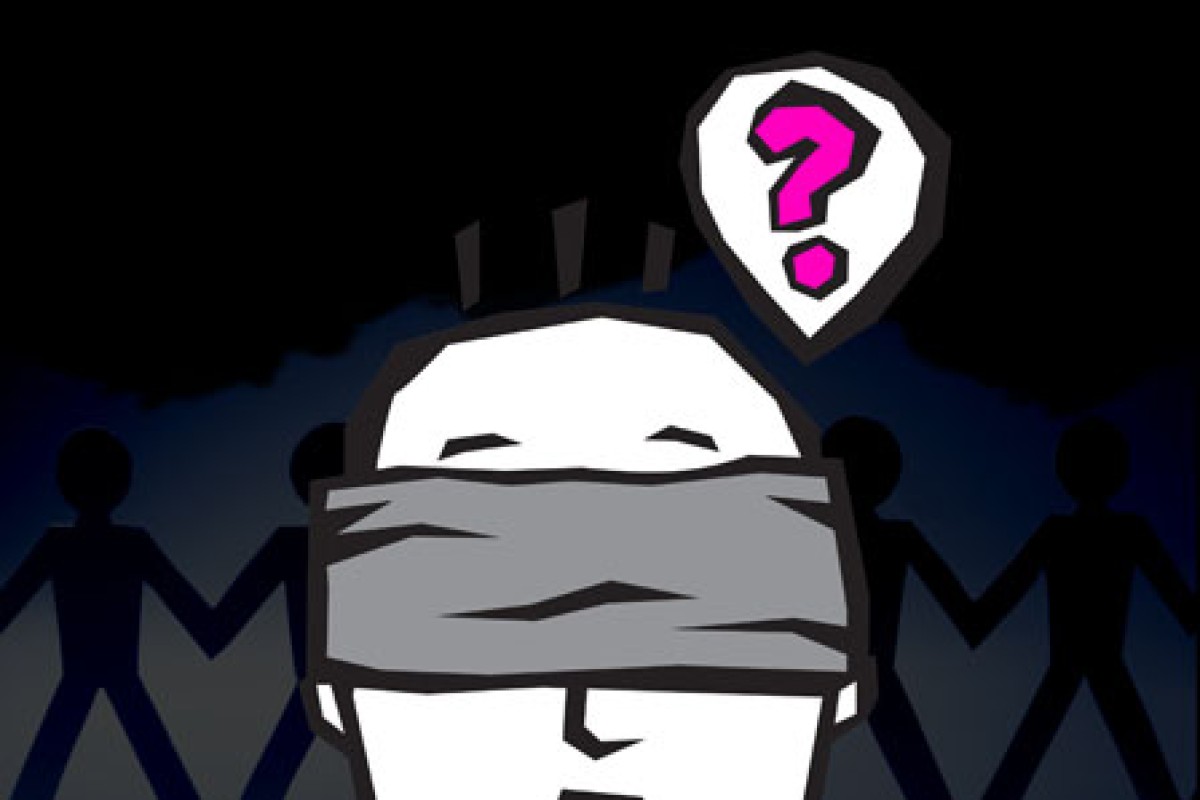 iii
iiiImagine losing your sight. Something you take for granted every day is no longer available to you. But more than that, you're in a strange environment with people you don't know.
You have to find your way around and complete puzzles that require you to communicate with those around you. It sounds like a nightmare but actually it's an exciting training experience that allows you to challenge your everyday perceptions.
Next month young people in Hong Kong will get the chance to try these and other fascinating workshops given by the world's leading creative minds. The Make a Difference (MaD) Forum runs form January 22 to 24 and is open to all people 16 to 30 years old.
Organisers of this workshop, Dialogue in the Dark (DiD), say putting participants in a pitch-black room allows them to meet challenges they have never experienced before.
In the two-hour darkroom workshop, participants can no longer rely on sight. They have to use other instincts and senses to perform tasks that range from orienting themselves to completing puzzles with other participants. Each person is given a stick to feel their way, and a blind person acts as a guide for each group. Even so, being plunged into total darkness is always shocking, especially the first time.
Tse Chi-keung of DiD Hong Kong, which will be organising the workshop, says many people voice their fear when the lights go out.
People have to come up with new ways to communicate in the darkness, says Tse, as they can no longer rely on visual clues such as facial expressions and other body language. The exchange of ideas depends entirely on the person's ability to make themselves understood verbally.
'If you can't use words effectively it will be very obvious,' he says.
Tse adds that the workshop aims to force people to question their assumptions by putting them in an environment where normal rules and assumptions did not work.
He says this is a reminder that the assumptions we make regularly in daily life might not always be correct and sometimes stand in the way of deeper insights. 'For example, people might assume that the visually impaired are not as competent as sighted people, but this is an assumption based on nothing,' Tse says.
The visually impaired guides monitor participants' performances. Afterwards, feedback sessions allow people to reflect on their experiences, while the guides share ideas on how to improve.
'When you've completed the workshop - after losing and regaining your sense of security - you will start to see the world from a very different perspective,' Tse said.
The concept was initiated by award-winning German social entrepreneur, Andreas Heinecke, who once worked for the Foundation for the Blind in Frankfurt. He started his social enterprise, Dialogue in the Dark, by offering exhibitions and business training in total darkness. He recruited the blind, disabled and disadvantaged as assistants.
To date, more than 6 million people in 20 countries have participated since the workshop was first launched in Germany in 1989.
Heinecke was inspired after meeting a blind colleague at a broadcasting corporation in Germany where he worked. His initial reaction was that he would have to look after his co-worker. But to his surprise, his new colleague helped him more.
Heinecke said the experience inspired him to start an initiative aimed at reducing prejudice against and stereotypes of the blind and the disabled in general.
Next month's event will also feature talks, seminars and workshops by more than 20 change makers from seven countries. They include Sir Ken Robinson who champions a radical change in education with his question on whether schools kill creativity; scientist Dr Kevin Fu, who was named by MIT Technology Review as 2009's Innovator of the Year; and Rhode Island School of Design professor John Maeda who explores the area where design meets technology.
MaD organisers will select 800 people aged 16 to 30 from Hong Kong, the mainland and around the region to take part in the lectures, seminars and workshops.
| To know more, go to www.M-a-D.asia The deadline for applications is December 19. |
